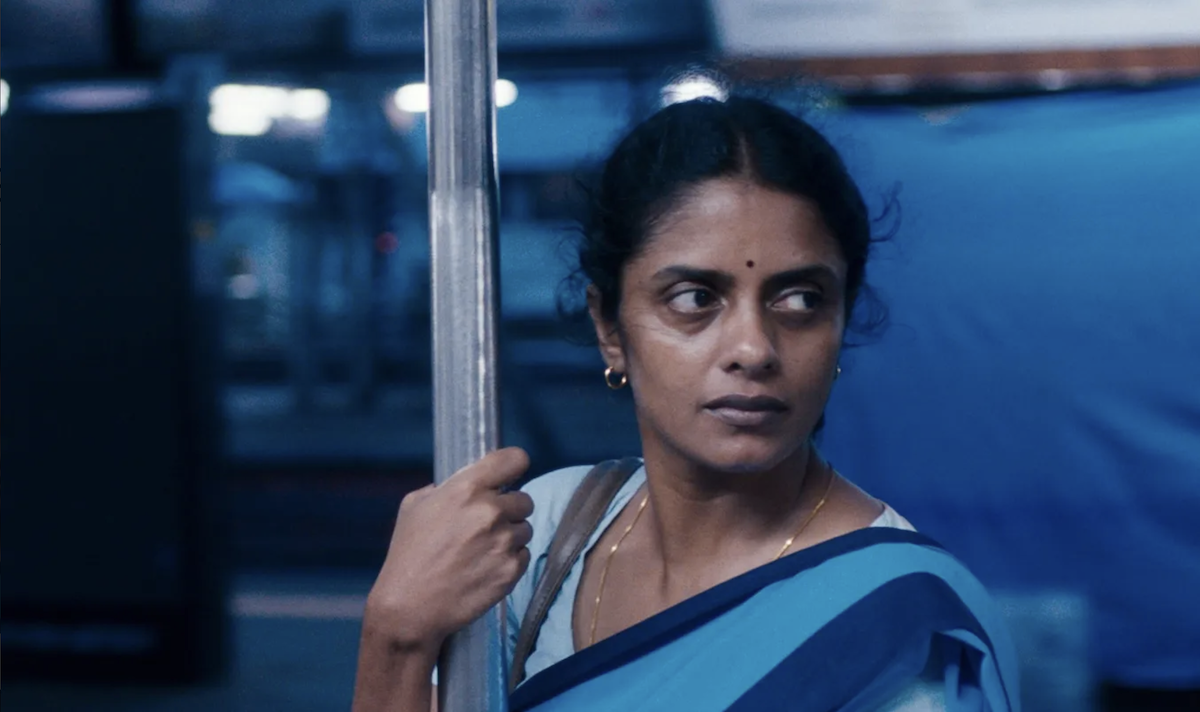‘All We Imagine as Light’ Review: India’s First Cannes Competition Title in 30 Years Is a Sensual Triumph


The intimate way that women move through a city sprawl gives Payal Kapadia’s drama about two nurses in Mumbai a deeply romantic gauze. This romance has to do with the way that people occupy their space in this world, whether alone or sharing it with others. The younger nurse Anu (Divya Prabha) comes in from the rain and, although she is giving her roommate Prabha (Kani Kusruti) the silent treatment after an earlier insult, she is still comfortable stripping her top off in front of her, in order to change into something dry. All the while Prabha is trying to make good, saying that she has made Anu’s favorite dish.
This casual everyday vignette is brimming with a sensuality (the rain, the clothes, the food, the women) that people don’t tend to notice when caught up in the rhythm of life. It takes a snapshot from a photographer removed from the situation to make you realize how full these moments are. Each shot by Ranabir Das in this gorgeous and absorbing film has been composed to have the skin-prickling effect of a photograph taken by someone with a deep and attentive care for their subject — a photographer sufficiently removed to see clearly while still close enough to feel the thrum of a lifeforce.
More from IndieWire
Anu and Prabha share two crucial spaces: They live together in a flat high up in the sky and work together at a city hospital. Where their fortunes diverge is in their love lives. Prabha’s husband through an arranged marriage went to work in Germany and she hasn’t heard from him in over a year. Anu is deeply, madly in love, but is keeping this on the sly as her boyfriend Shiaz (Hridhu Haroon) is Muslim. Meanwhile, her parents text her a steady stream of — to their minds — eligible Hindu suitors.
Kapadia infuses the film with subtle political undercurrents. Rather than showing overt scenes of the Hindu nationalism that India’s Prime Minister Modi has proudly brought to the mainstream, she lets its impact play out impressionistically via the furtive way that Anu and Shiaz rendezvous. First and foremost, a master of image creation, she uses this secrecy as an opportunity to mount a compelling dialogue-free sequence of love hiding in plain sight. A busy traffic intersection is filmed with the long lens of a private detective. We see Anu first then glimpse a figure walking through the bustle until he — Shiaz! — is holding her hand. Without acknowledging each other, they keep walking together, touching but not speaking, until they are a safe distance from the hospital.
Despite the attentions of an amorous, poetry-writing doctor at the hospital, Prabha’s down-time is spent in a state of solitary yearning. Especially so after the home delivery of a German-made rice cooker conjures the specter of her MIA husband. Late at night, she sits alone in the kitchen holding the rice cooker. We can almost feel its cool smoothness and imagine how that contrasts with the warmth of human skin. Kapadia brings out the poise and internalized anguish of her actress, Kusruti, whose face is impassive and whose feelings are not revealed until a strange thing happens that brings her to a new level of self-understanding.
The beats of “All We Imagine as Light” are calibrated with hypnotic grace creating a rhythm that induces pure pleasure. No mystery of the human heart will reveal itself until the scene that naturalistically brings it to the surface. With her editors, Clément Pinteaux and Jeanne Sarfati, Kapadia uses the city as punctuation between the events of her character’s lives. From lights that spread out like a carpet of electronic stars to Anu and Shiaz standing together as the motions of a commuter train rock them into grazing contact, these are the lulls that cast a spell on our senses. There are enough crowd scenes to convey the scale and potential for chaos within a population of 15 million, still, the principle characters are usually able to find pockets of space and time to relax into who they are. This city symphony is a far cry from the usual trope of Mumbai as a noisy, stressful, disorderly hub; Kapadia doesn’t pretend that this aspect isn’t at play, she simply finds transfixing patterns, thus making her an ideal tour guide while she situates characters as tiny moving parts within a great engine.
One other character to loom large is Parvaty (Chhaya Kadam), Prabha’s long-term friend and colleague, an older lady with a house by the sea and a sanguine attitude. “They think that by building their towers taller and taller, one day they will replace God,” she says, eating nuts out of a cone at the back of a municipal bus. Later the ladies throw stones at a sign announcing an elite housing development, giggling when they actually connect. Just as the politicized religious climate is gently loaded onto characters, so too are issues of gentrification and wealth inequality. There are no speeches, no grandstanding, only people molded with a light touch by the social forces at play, yet most intimately concerned with their relationships with each other.
Text messages between the lovers, Anu and Shiaz, are read out in voice-over juxtaposed against the sights and sounds of the city. They are trying to exert their souls against their environment but it is becoming incredibly difficult for them to have the privacy they need. Parvaty’s house by the sea comes in handy for a magical third act, in which Prabha and Anu’s parallel love lives flare up in fittingly different ways. Divya Prabha and Kani Kusruti’s amazing performances show up extra colors in this new setting. The former’s respectfully controlled passion expresses itself to the fullest, for Shiaz has discreetly followed the ladies to the sea. Here, he and Anu explore a cave and make love in a forest. It feels like “making love” too, not sex, not hooking up, something primal and bonding and right.
For Prabha, an incident that requires her nursing skills, presents a surreal opportunity to play out the matrimonial desires frozen in amber since her husband’s departure. Throughout several extraordinary scenes in a dimly lit fishing hut, her grounded reality and desirous imagination fuse into each other and truth is indistinguishable from wonder. It is a testament to how Kapadia has drummed up sensory experience from the minutiae of daily life that we are able to exist within Prabha’s dreams.
Grade: A
“All We Imagine as Light” premiered in Competition at the 2024 Cannes Film Festival. Sideshow and Janus will release the film in the U.S.
Best of IndieWire
Sign up for Indiewire's Newsletter. For the latest news, follow us on Facebook, Twitter, and Instagram.

 Yahoo News
Yahoo News 
